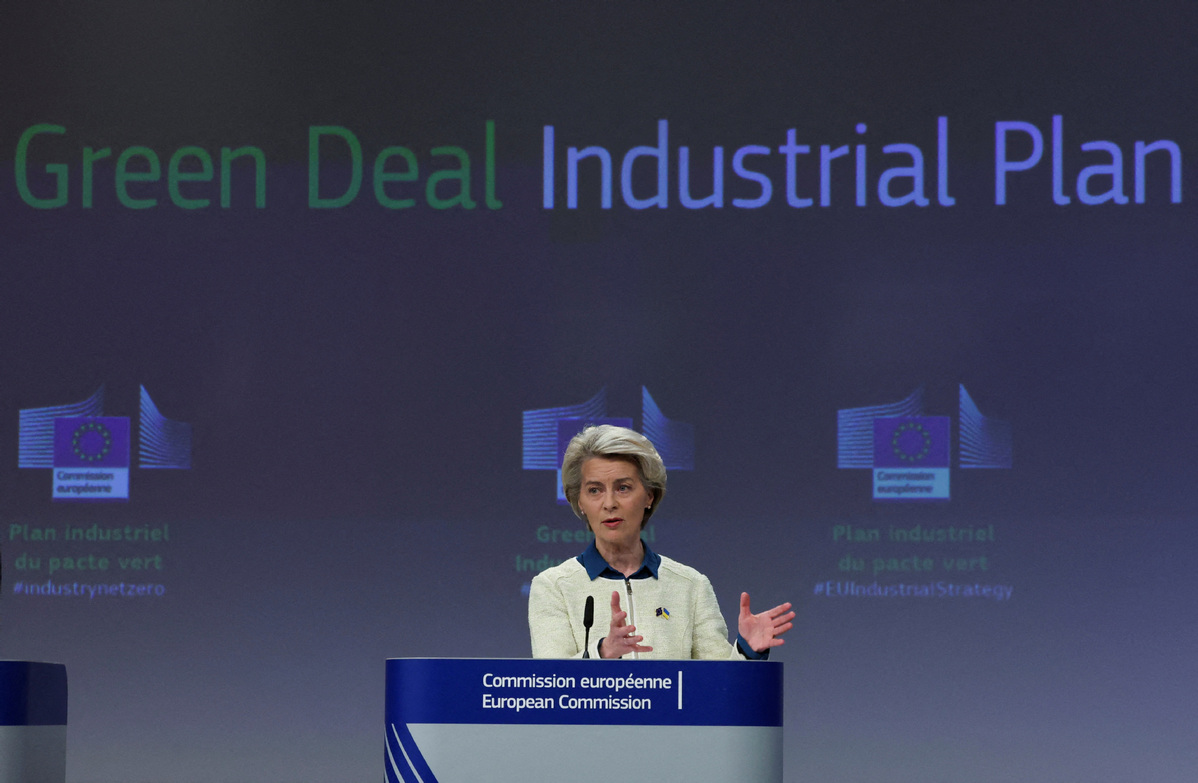EU shifts to support net-zero industries
By JONATHAN POWELL in London | China Daily Global | Updated: 2023-02-10 09:20

European Union leaders gathered in Brussels, Belgium on Thursday to plan the bloc's green spending and how it can respond to the United States' huge green subsidy plan, the Inflation Reduction Act.
Last week, the EU presented its own Green Deal Industrial Plan that it said aims to provide "a more supportive environment for the scaling up of the EU's manufacturing capacity for the net-zero technologies and products required to meet Europe's ambitious climate targets".
The deal seeks to "enhance the competitiveness of Europe's net-zero industry" and is said to build on previous initiatives, complementing the European Green Deal that aims to make the bloc climate-neutral by 2050.
The EU said the plan is based on four pillars: "A predictable and simplified regulatory environment, speeding up access to finance, enhancing skills, and open trade for resilient supply chains".
France's President Emmanuel Macron and Germany's Chancellor Olaf Scholz both support the subsidies plan that recommends easing of state-aid rules, reported the Politico news website.
But, it said, other EU member states suspect France and Germany are seeking to "prop up their own industries at the expense of less-well-off countries in the single market".
Economists are intrigued to see how the EU will invest in the technologies of the future amid the bloc's strict regulation policies that are seen as preventing the creation of state-driven investment models.
Writing in the Financial Times, trade columnist Alan Beattie said: "Now, even instinctively liberal economists accept that more state-guided investment might be appropriate for green industries which have a fast-advancing technological frontier and early-mover advantage."
An official from a country with concerns about the position of the bloc's two industrial powerhouses told Politico other member states are not happy with the proposals.
"We're rushing into taking potentially very far-reaching measures that risk running into a subsidy war with the United States and even a subsidy war with one another," they were quoted as saying, anonymously.
"There is a very strong push by France and Germany to go forward with these rules. We see a potentially groundbreaking transformation of the EU state aid regime — we think it's all being done too fast and without sufficient analysis."
The FT said that any relaxation of state-aid rules at a national level elevates anxiety about France and Germany "poaching investment from other member states".
In his opinion column, Beattie wrote: "Designing an EU-wide industrial policy which can address cross-border supply chains will involve a significant break with the philosophies and institutions of the past."
























